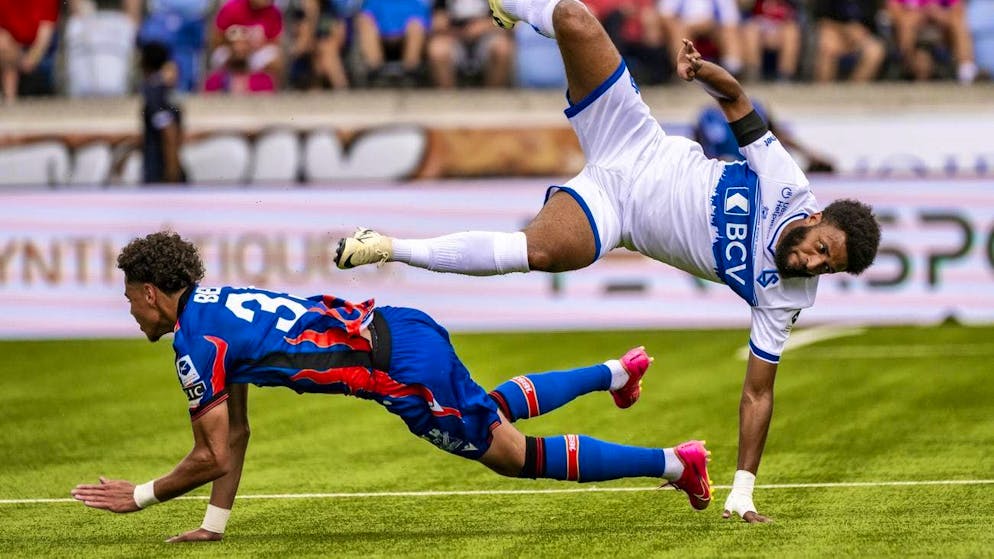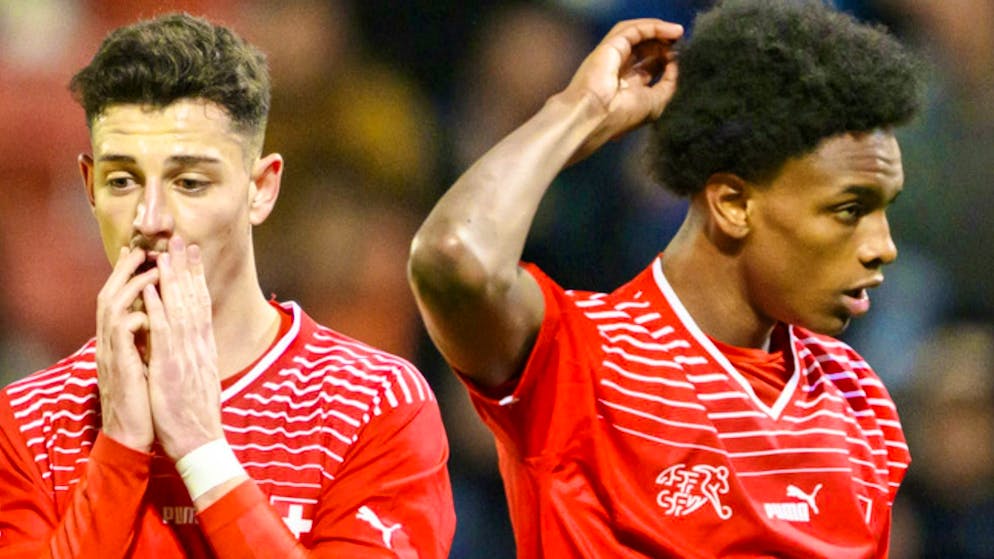The Super League is a training league, but no longer for Swiss players. Clubs such as St. Gallen and YB hardly rely on home-grown talent any more. The Swiss Football Association is concerned.
No time? blue News summarizes for you
- There are significantly fewer Swiss talents under the age of 21 playing in the Super League than five years ago.
- What does this mean for the national team in the long term? "I'm worried," says national team director Pierluigi Tami. The SFA is aware of the problem, but a solution has not yet been found.
- At YB and St. Gallen, hardly any Swiss players born in 2003 or later have been called up so far this season. The situation is very different at FC Luzern. FCL can therefore look forward to a financial boost from the league.
Using young players and selling them for a lot of money - the main business model of a Super League club is simple. But fewer and fewer clubs are relying on their own young talent, preferring instead to bring in foreign talent - in the hope that they will one day bring more money into the coffers.
According to calculations by the Sonntagszeitung newspaper, Super League teams used their Swiss youth players for an average of 5223.7 minutes per club in the 2019/2020 season. In the previous 2023/24 season, the figure was 3101.5 minutes. If you deduct FC Luzern, which uses its young players the most by far, the figure is still 2065.7 minutes per club. This is despite the fact that the Super League has been increased from ten to twelve teams and there are more matches.
The start of the new season does not promise any improvement either. In the first few games, only five clubs have used more of their young Swiss players than in the previous season. "The clubs are under pressure. They absolutely want to be at the international level and definitely don't want to be relegated. That's not easy to achieve with young players who still need to gain experience," says Patrick Bruggmann, Director of Football Development at the SFA, to blue Sport.
Clubs prefer to promote foreign talent
According to the association, the young Swiss players are not lacking in quality. "I struggle when clubs prefer to give playing time to a foreign talent rather than a Swiss player who has just as much potential," says Bruggmann.
Take FC Basel, for example: with Bénie Traoré (Ivory Coast, 21), Marin Soticek (Croatia, 19) and Kevin Carlos (Spain, 23), FCB has signed three new strikers for big money. Home-grown talents such as 19-year-old Roméo Beney - who was highly praised last season - must once again take a back seat. Beney played for FCB's U21 team in the Promotion League on the last two match days.

FC St. Gallen and YB have also signed various foreign talents this summer, while their own youngsters have - at least so far - more or less waited in vain for a chance.
"We have talent. But it takes courage to use them. We know that our young players often need a little more time. We have to give them that. In the Super League, there isn't necessarily enough time to train the players," says Bruggmann.
Junior national team is no longer top
The SFA is concerned about what this development means for the senior team. "I am worried. If we don't react, it could be dangerous for the senior team in the future," says national team director Pierluigi Tami. He believes that foreign investors and club owners in Swiss football are contributing to the problem. "More and more owners of Super League clubs are foreigners. In the past, it was the Swiss who were also interested in training our juniors."
According to Tami, the Swiss Football Association needs to think about how to support Swiss talent. Otherwise, the national team would be facing a major problem, especially as the success of the U-side teams is also lacking. In 2009, the U17 team became world champions, and in 2011 the Swiss U21 team made it to the European Championship final. Since then, we have regularly failed to qualify for finals at youth level.

Bruggmann sounds the alarm: "When we see our junior national teams at international tournaments, we have the feeling that our players lack maturity and dynamism because they don't know the high level. Compared to other nations, we are lagging behind." Many U-Nati players lack experience at the top level because they no longer get it in Basel, St. Gallen or Bern.
Only Lucerne relies fully on its own youth
Lucerne shows that things can be done differently, with eight Swiss players born in 2003 or younger playing for FCL this season. Six have been in the starting eleven at least once and three are regulars.
Last year, FCL was the top team in Switzerland's top division with an average of 381 minutes per game for youngsters. This season, too, the talented Luzern players with Swiss passports played a total of 2107 minutes in the first six games.
By comparison, YB have played just 66 minutes, all of which have been played by U21 international Zachary Athekame. Lucerne's consistent promotion of young talent also involves certain risks. Last season, for example, they missed out on the top 6 and were relegated. YB became champions and qualified for the Champions League.

The Swiss Football League has recognized the problem with young talent and is trying to counteract this with financial incentives in the "Young Talent Trophy" support system. Starting this season, bonuses will be paid out: The team with the most minutes for young Swiss players will receive CHF 250,000. 150,000 for second place and 100,000 for third place, with the rest going home empty-handed.
Clubs in the Challenge League are also rewarded. Every club whose young players have played at least 6,000 minutes by the end of the season will receive 50,000 francs. Clubs with at least 8,000 minutes will receive a further 50,000.
Is the solution in the Challenge League?
But is this financial incentive enough to encourage clubs to promote their own talents more? Bruggmann is skeptical: "The league structure and the mode in various leagues was only recently adjusted. But from the point of view of promoting young talent and the athletes' pathway, we have to constantly consider whether there is enough space in our top leagues to give our young players enough opportunities to take the next step in their development."
Could a larger Challenge League solve the problem? In the past, some great careers have already been launched in the second-highest Swiss league. For example, that of Manuel Akanji, who made his debut at FC Winterthur ten years ago and is now a regular at Manchester City. The SFA is convinced that a number of juniors in Switzerland have the potential for a similar career. But they also need to be given a chance.





